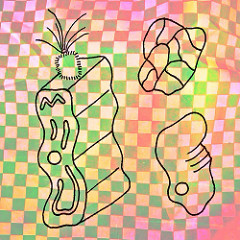As our doctors’ capabilities for recognizing and diagnosing health issues increase with the rise in medical diagnostic techniques, more and more food allergies are being discovered. What was once considered a sour stomach may actually be a sensitivity to milk products. Once you know about a food allergy, you can avoid the foods that trigger your reactions, elevating your health and well-being. This article will provide a brief overview of the more common food allergies.
Accidentally setting off an allergic reaction to a food can cause a number of symptoms that can give you a hint of your sensitivity. Signs of an allergic reaction can start with itching in the mouth and swelling in the breathing passageway, as well as nausea, vomiting, diarrhea, and abdominal pain once the item reaches your digestive system. Skin reactions include hives and eczema. Food allergies are frightening because they can cause someone to go into anaphylactic shock and die.
Interestingly, there are eight common sources of food allergies that contribute to 90% of all food allergens. Here is a quick list of those items, and some hidden sources of the foods.
Peanuts.
Surprisingly, peanuts are actually legumes, not nuts. Either way, they are the leading source of severe allergic reactions. Therefore, those with peanut allergies have been attempting to get the traditional peanut airplane snack banned from planes, because peanut allergies can be so extreme that just being in the same room with one can cause someone to go into anaphylactic shock. Peanuts are hard to avoid because they are in so many items, as frying oils, reflavored nuts, etc.
Shellfish/Fish.
People with shellfish and fish allergies usually have to stay away from a number of items, including Caesar salad dressings and imitation crab meat, as well as the plain shellfish and fish meat itself. For those with shellfish allergies, everything from shrimp to oysters can trigger a harmful reaction.
Tree Nuts.
Tree nuts are what we normally consider to be the true nuts, such as pecans and walnuts. Tree nuts can show up in cereals, barbecue sauces, and ice creams, among others. Also, crushed nut shells are sometimes used in bean bags and hacky sacks, and when those with tree nut allergies come into contact with these items, they can have allergy attacks as if they had eaten the food.
Milk.
Lactose intolerance is actually an enzymatic problem where the enzyme lactase cannot split the milk protein lactose into glucose and galactose. This leads to digestive system pain more often than swollen or clogged airways. Milk products are obviously in drinking milk and ice cream, but can also appear in sauces and as butter on steaks and other meats.
Eggs.
Egg allergies can come up not only with food, but also with vaccines. Egg proteins are sometimes used in shots because the immunizations are usually grown on egg embryos. Also, those with egg allergies should avoid most pastas and foamy products, as egg is occasionally used as a stabilizer for coffee foams, among others.
Soy.
Soy allergies are probably most difficult for vegetarians, as it is often used as a protein alternative in things such as tofu. For everyone, look out for numerous processed foods that use soybean oils. It can also be found in peanut butters, crackers, soups, infant formulas, etc.
Wheat.
Although you may know wheat sensitivity as Celiac Disease, there are also just plain wheat allergies. For those with celiac, anything containing gluten, including wheat, can lead to adverse reactions. However, for those with wheat allergies, only wheat makes a person react. Scarily, wheat is often used as stabilizer in everything from soups to deli meats, and it can be difficult to dodge. People with wheat allergies need to abstain from everything from wheat breads to soy sauce with wheat.
For more information on food allergies as well as other hot-topic health issues, check out the Health Directory today.
Joseph Devine

